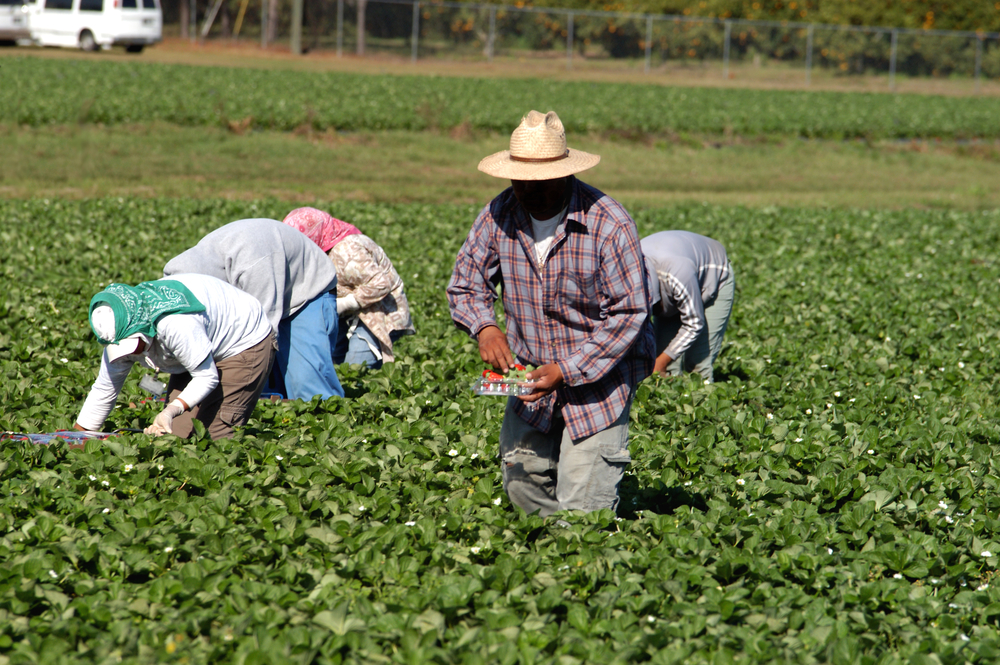
Article written by Mark Hoffmann (mark.hoffmann@ncsu.edu) and Chip Simmons (odsimmon@ncsu.edu); NC State University
The following describes actions a grower should take if there is a positive COVID-19 case is on the farm:
Preparation and Prevention:
Have an emergency plan for how you will (1) care and (2) isolate COVID-19 infected workers. Identify the nearest healthcare facility that provides free or low-cost care to uninsured people.
Promote Social Distancing, Protection and Hygiene
Educate yourself and workers about hand hygiene, respiratory etiquette and emergency responses (Spanish and English).
Social distancing between farm workers can encompass differences in work flow as well as potentially impacting worker responsibilities. All of this information should be captured in an emergency plan. To protect your work force as well as yourself, the implementation of social distancing and other safety measures is highly recommended.
Provide weekly supplies to each farmworker to fight COVID-19, such as alcohol-based hand sanitizer (if available), disinfectants and lined trash cans. Hand washing is a key to preventing the spread of COVID-19, and growers should always provide adequate hand wash facilities, stocked with soap and disposable towels for hand drying.
Active Prevention
Screen arriving workers for symptoms of COVID-19 such as fever, cough, or shortness of breath.
Clean and Sanitize your farm: COVID-19 and small produce farms. In addition to routine cleaning and sanitation, it is recommended that if there is a COVID-19 positive on the farm, all common touch surfaces, such as door knobs, bathrooms, touchscreens, etc. be disinfected with a dilute bleach solution (1,000 ppm – 5 tablespoons / gal water) or a disinfectant listed in the EPA List N: Disinfectants for Use against SARS-COV-2. (SARS-COV-2 is the virus that causes COVID-19.)
If a worker has symptoms or is confirmed COVID-19
This worker should stop working immediately.
If there is an onsite room designated for ill workers, suspect COVID-19 cases should be directed to that room at the time of symptom onset until appropriate isolation plans can be carried out.
Contact your local health department as required by OSHA.
Arrange for ill workers to be evaluated by a medical provider.
Make sure every worker has enough food and water as they will be quarantined and unable to leave the farm.
Frequently check on the ill worker in isolation to monitor for worsening symptoms. About 20% of infected people will develop severe respiratory symptoms that may require hospitalization.
Instruct workers who have had close contact with a COVID-19 patient to self-monitor for symptoms of COVID-19 (fever, cough, or shortness of breath) for 14 days. Those exposed should be separated from non-exposed workers for 14 days (e.g. sleep in a separate room, work in a separate area, use a separate bathroom and cooking facility). Workers can continue to work unless they have tested positive for COVID-19 or are exhibiting any symptoms (fever, cough, shortness of breath, etc.) according to the FDA – see these guidelines. If they develop symptoms of COVID-19, they should immediately be quarantined and you should contact your local health department.
Additional steps such as deep cleaning of facilities or complete closure of the business are not mandatory, but can be taken if the business owner believes it is safer for all workers and customers.
Failure to provide separate housing for infected workers could reasonably be expected to cause death or serious harm to the uninfected workers, which violates the Migrant Housing Act of North Carolina that requires housing providers to immediately provide safe housing.
It is unlawful for employers and migrant housing providers to retaliate/take any adverse employment action against any worker who files a complaint or otherwise asserts their right to safe working and/or migrant housing conditions in NC under the NC Retaliation Employment Discrimination Act.









